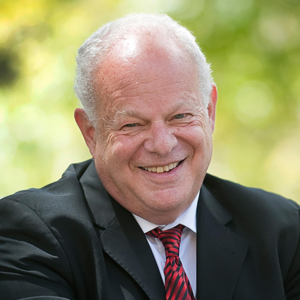Martin E.P. Seligman is the Zellerbach Family Professor of Psychology at the University of Pennsylvania and Director of the Positive Psychology Network. Professor Seligman studies positive psychology, learned helplessness, depression, and optimism and pessimism. He is well-known in academic and clinical circles, a bestselling author, and former President of the American Psychological Association.
Dr. Seligman’s bibliography includes fifteen books and 150 articles on motivation and personality. His books include: the best-selling Authentic Happiness: Using the New Positive Psychology to Realize Your Potential for Lasting Fulfillment (Free Press/Simon and Schuster, 2002), Learned Optimism (Knopf, 1991), What You Can Change & What You Can’t (Knopf, 1993), The Optimistic Child (Houghton Mifflin, 1995), and Helplessness (Freeman, 1975, 1993). His books have been translated into twenty languages and have been bestsellers both in America and abroad. His work has been featured on the front page of the New York Times,Time, Newsweek, U.S. News and World Report, Reader’s Digest, Redbook,Parents, Fortune, Family Circle, and many other popular magazines. He has been a spokesman for the science and practice of psychology on numerous television and radio shows and has promoted the field of Positive Psychology globally. He has written columns on such topics as education, violence, and therapy. He has lectured around the world to educators, industry, parents, and mental health professionals.
Dr. Seligman is the recipient of two Distinguished Scientific Contribution awards from the American Psychological Association, the Laurel Award of the American Association for Applied Psychology and Prevention, and the Lifetime Achievement Award of the Society for Research in Psychopathology. He holds an honorary Ph.D. from Uppsala, Sweden, and Doctor of Humane Letters from the Massachusetts School of Professional Psychology. Dr. Seligman received the American Psychological Society’s William James Fellow Award (for contribution to basic science) and the James McKeen Cattell Fellow Award (for the application of psychological knowledge).

